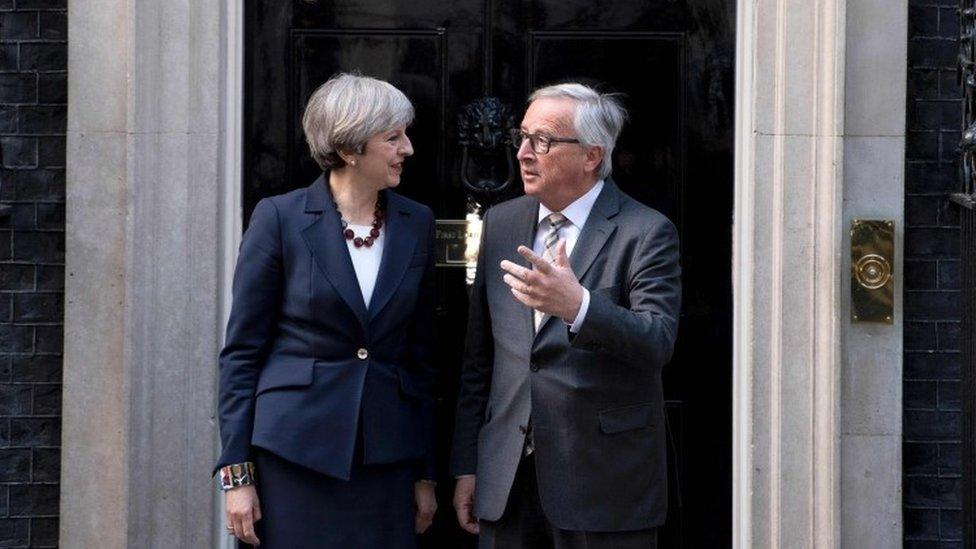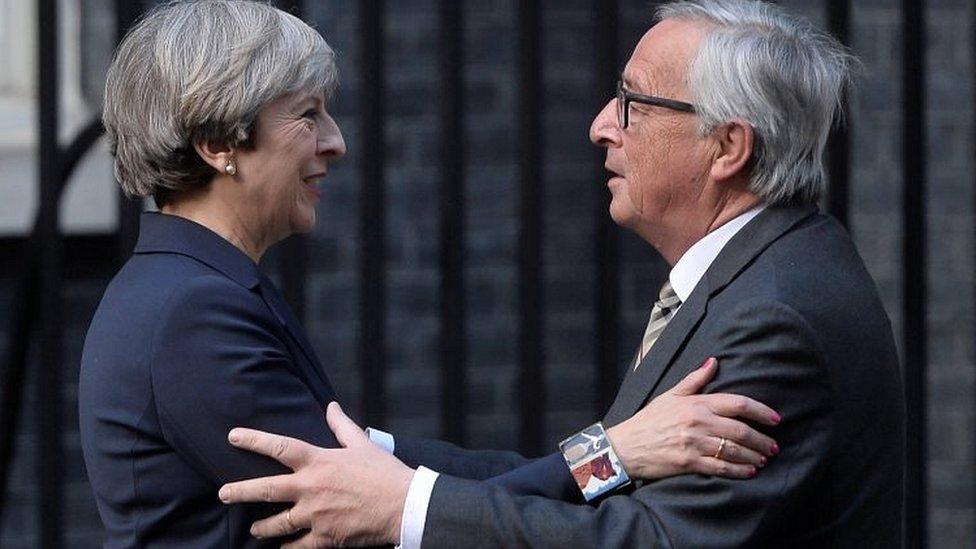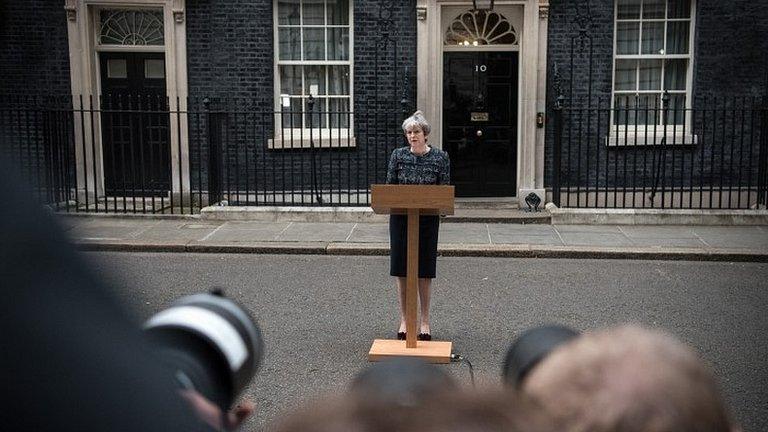How Brexit row could impact UK general election
- Published

Conservative sources have declined to enter into a "briefing war" with Brussels.
What the PM described yesterday as "Brussels gossip", now this morning has been more firmly dismissed by Number 10, claiming "we really, really don't recognise these reports" (Not precisely the same rebuttal).
Of course, no politician would wanted to be branded "delusional", or indeed, "ignorant" or "misunderstanding", or to have a blow-by-blow account of just how awkward and unproductive a vital private dinner about the future of your country was.
Not least Theresa May who is someone who does her homework, makes careful plans, and takes "getting on with the job", one of her favourite phrases, extremely seriously.
The proactive and critical briefing against Number 10 after the meeting between the PM and some of the EU's top officials, Jean Claude Juncker and Michel Barnier, last week, has, unsurprisingly, spilled into the election campaign and onto some of this morning's front pages.
Overnight, my BBC colleagues in Brussels have been told the UK was on a "different wavelength" and "misunderstanding" of how the EU works.
The message from the EU is not really very different from what has been said in Brussels for many months.
The UK has been told repeatedly that the EU will stick together, that nothing can be agreed until everything is agreed, and also that parallel talks on trade and the exit deal are extremely unlikely.
Indeed, the prospect that the talks could fail has also been a distinct possibility.
And it can't be said too many times, there will be spin on both sides of this negotiation, right up until, and including the end of the process. Neither side right now wants be seen as willing to give ground. And like it or not, spin is part of the armoury on both sides.
But the briefings have extra charge during the febrile atmosphere of the election campaign.
Privately in March, ministers in the UK believed the EU was softening its approach, hoping that some countries could come alongside, against what they consider the rigid approach of the EU institutions.
The accusations being hurled around now, even the public statement from the EU's most powerful politician, Angela Merkel, that some in the UK have "illusions" don't augur well for the negotiations.
And the comments will be used again and again by Theresa May's political opponents to claim she is out of her depth and has no realistic plan for Brexit.
Stand by, however, to watch Number 10 try to flip it on its head, to use the very obvious challenges ahead as ammunition in her central election argument - precisely because the talks will be tricky, it's vital that she has her own strong, negotiating mandate they claim.
Although diplomats like to (mis)quote the 19th century general, Helmuth Von Moltke, that no plan, however good, survives its first contact with the enemy, and the chances of the EU agreeing all of Downing Street's approach are as skinny as a skelf, since the trigger of Article 50, the signs are not rosy.
These leaks from last week's dinner a sign that parts of the EU are willing to play rough.
The question is, whether over time, if she ends up back in Number 10, Theresa May's determination can shift them.
Or whether up against 27 in talks, she is brutally outnumbered from the start.
- Published1 May 2017

- Published30 April 2017
